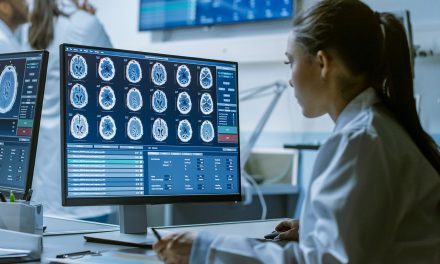It’s a remarkable gift God has given to you: the power to change your life through your choices. Each decision you make directly impacts your personal wellness journey. These choices (good and bad) are constantly changing the world around you. But choice doesn’t originate in the world around you. It begins within the mind.
The human brain possesses a remarkable capacity for decision-making that sets us apart from other species. Located in the frontal lobe, our capacity for judgment and long-term planning is a gift that allows for truly informed choices. Research has consistently shown that individuals who believe they can control their own lives experience better health outcomes. They are not just happier but demonstrably healthier and more resilient.
Biblical wisdom provides powerful insights into the power of our choices. Consider Daniel, who chose to remain faithful to God despite tremendous pressure in the Babylonian court (Daniel 1:8-16). His decision to maintain his spiritual integrity resulted in personal protection and ultimately influenced an entire kingdom. Similarly, Esther made a pivotal choice to risk her life by approaching the king uninvited, a decision that saved her entire people (Esther 4:10-16). These narratives demonstrate that choices are not merely personal but can have far-reaching implications.
Scientific research offers insights into our decision-making processes. Cognitive scientists have identified several factors that significantly influence our choices:
Cognitive Biases
Our brains are vulnerable to systematic errors in thinking. Confirmation bias leads us to favor information that confirms our existing beliefs. This can prevent us from making objective decisions about our health and personal growth. This bias appears when investors hold onto failing stocks because they only notice positive news about the company, or when sports fans selectively remember the great plays their favorite team made while forgetting their mistakes. In medical settings, this bias can result in clinicians overlooking contradictory evidence.1
Emotional Influences
Emotional states dramatically impact our decision-making capabilities. Intense anger can cloud judgment during workplace disagreements, leading to hasty emails or comments one later regrets, while overwhelming excitement can prompt impulsive purchasing decisions that ignore budget constraints and long-term financial planning. Similarly, depression can alter brain function in regions responsible for judgment and planning. Studies have shown that depression affects brain regions like the prefrontal cortex and basal ganglia, impairing decision-making and potentially leading to harmful choices.2
Environmental Pressures
External factors play a significant role in our decision-making. Time constraints, social expectations and immediate environmental conditions can push us toward choices that might not serve our best interests. This phenomenon appears in everyday scenarios, such as when shoppers make unplanned purchases due to limited-time sales tactics, or when students consume drugs or alcohol due to peer influence and social pressure. In hospital settings, time pressure and fatigue can lead to reliance on mental shortcuts, increasing the likelihood of errors.3
Practical steps can help us become more intentional decision-makers:
- Practice Self-Reflection: Take time each day to review your choices and their potential consequences.
- Seek Wisdom: Consult trusted sources including spiritual mentors, medical professionals and respected friends.
- Understand Your Motivations: Recognize the underlying emotions and beliefs driving your decisions.
- Create Deliberate Pause: Develop a habit of waiting before making significant choices. This allows for more thoughtful consideration.
- Learn Continuously: Approach each decision as an opportunity for growth and understanding.
Your choices are more than isolated moments. They are the building blocks of your personal wellness journey. Each decision connects to your physical, mental and spiritual health. Your choices also impact those around you. By becoming more intentional you can transform your life, one choice at a time.
Remember: You have the power to choose.
_____________
References
1Lakhlifi, C., and B. Rohaut. “Heuristics and Biases in Medical Decision-Making under Uncertainty: The Case of Neuropronostication for Consciousness Disorders.” 2023, p. 104181.
2Yang, S. “Exploring the Principles of the Influence of Mental Illness on Decision-Making.” SHS Web of Conferences, vol. 162, 2023, article no. 01043.
3Jala, S., M. Fry, and R. Elliott. “Cognitive Bias during Clinical Decision-Making and Its Influence on Patient Outcomes in the Emergency Department: A Scoping Review.” Journal of Clinical Nursing, 2023.





